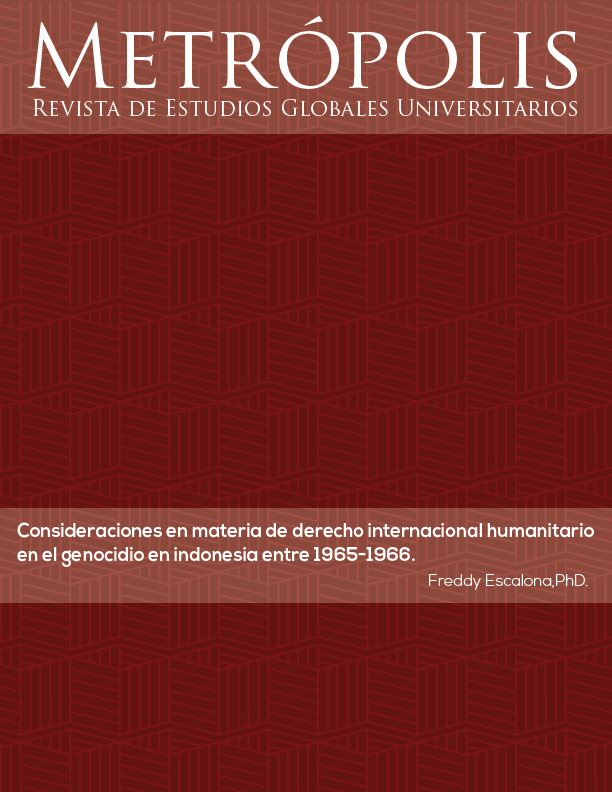Considerations regarding International Humanitarian Law in the Genocide in Indonesia
Keywords:
Genocide, International Humanitarian Law, IndonesiaAbstract
Genocide is understood as any of the acts perpetrated with the intention of totally or partially destroying a national, ethnic, racial or religious group as such: a) killing of members of the group; b) serious injury to the physical or mental integrity of the group members; c) intentional submission of the group to conditions of existence that will lead to its total or partial physical destruction; d) measures aimed at preventing births within the group; e) forcibly transferring children from the group to another group. It is a serious crime classified in International Humanitarian Law. It is defined in the Convention for the Prevention and Punishment of the Crime of Genocide, adopted on December 9, 1948 by the United Nations General Assembly. In the case of Indonesia, International Humanitarian Law did not take precedence over national legislation, so a balance had to be sought, so that national sovereignty or the purposes or principles of the Charter were not violated.

Downloads
Published
How to Cite
Issue
Section
License
Copyright (c) 2021 Freddy Alberto Escalona Esteves,PhD.

This work is licensed under a Creative Commons Attribution-NonCommercial-ShareAlike 4.0 International License.



